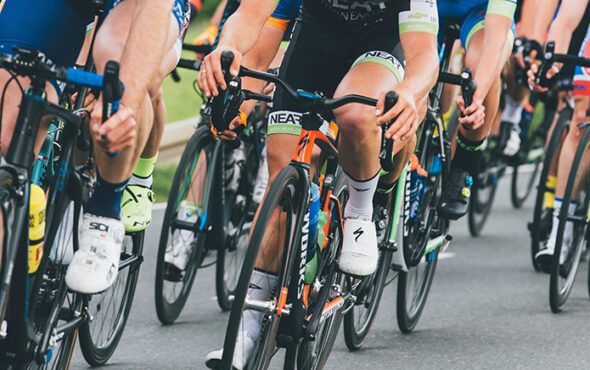
Transgender women will be banned from competing in the female category of British Cycling’s competitive events following a nine-month review and consultation.
The governing body said its new participation policy is “predicated on fairness” and these athletes can compete in an ‘open category’ with cis-men instead.
The female category will be exclusively “for those whose sex was assigned female at birth” and trans women will still be able to participate in non-competitive recreational and community cycling.
The changes are set to take effect by the end of the year and only apply to British Cycling events.
It apologised for the “uncertainty and upset that many have felt” in the time since its trans inclusion policy was suspended in April 2022 so the body could carry out research and consultation.
READ MORE: World Athletics bans trans women from female events
“We have always been very clear that this is a challenge far greater than one sport,” said British Cycling CEO, Jon Dutton.
“We remain committed to listening to our communities and working with our fellow sporting bodies to monitor changes in the scientific and policy landscape, to ensure that sport is inclusive for all.
“We have been open and transparent with the UCI on our decision and will work collaboratively with them to ensure a seamless implementation over the coming months.”
“Any discussion is inherently political and driven by bad faith actors”
Emily Bridges, the country’s highest profile trans cyclist, will not be able to join the British women’s team under the policy.
“The racing scene is dying under your watch,” she wrote on Instagram shortly after the policy was announced on 26 May, “and all you do is take money from petrochemical companies and engage in culture wars.
“You don’t care about making sport more diverse, you want to make yourself look better and you’re even failing at that.
“Cycling is still one of the whitest, straightest sports out there, and you couldn’t care less.”
READ MORE: Trans cyclist Emily Bridges ‘dreams’ of riding for Wales despite participation ban
She went on to state that she supports the idea of a “nuanced policy” but does not believe what British Cycling has announced equivalates to that.
“Research isn’t being viewed critically, or any discussion about the relevance of the data to specific sports,” Bridges continued.
“Any discussion is inherently political and driven by bad faith actors, and the whole discussion is framed by the media who are driven through engagement by hate funding from far-right ultra capitalists.”



